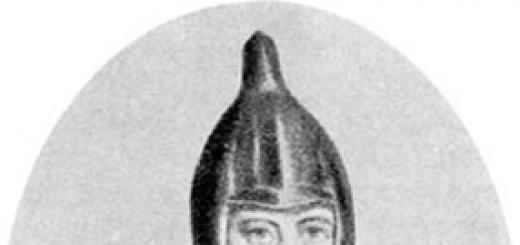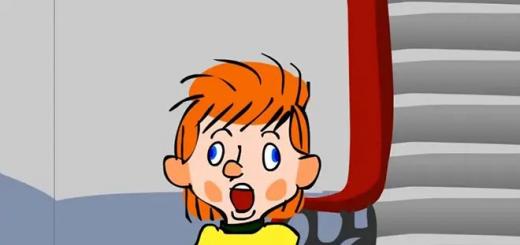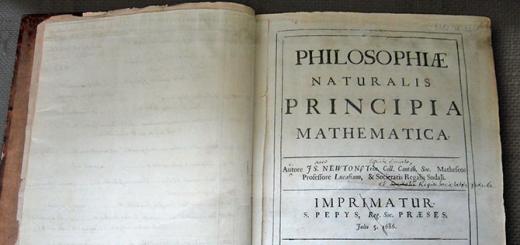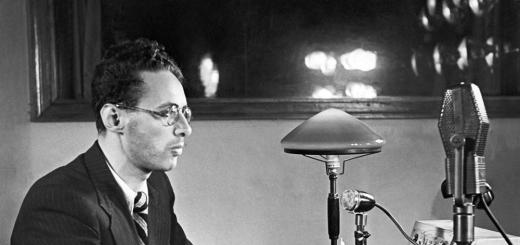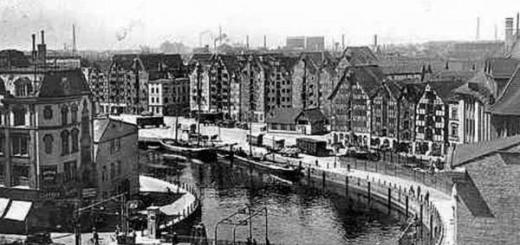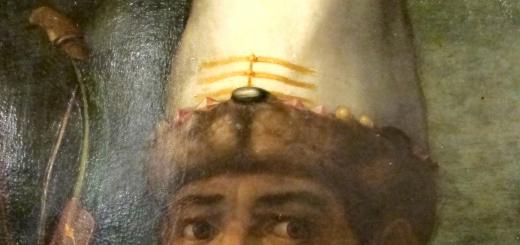Books, but in a slightly different format - in electronic form. This is very good, but the quality of most modern works leaves much to be desired. Undeveloped teenagers simply do not understand the classics when there are a lot of other fascinating books that are also easily perceived.
Why should students read the classics?
Love for classical literature is instilled from the school bench. The program is filled with deep and powerful works by Tolstoy and Pushkin, Dostoevsky and Gogol, and other great authors. However, schoolchildren stubbornly refuse to read their works.
The student must read the classics. After all, it is difficult to consider a person educated if he cannot say a word about the masterpieces of world classical literature. A teenager is not obliged to love these books, but he must know and understand them.
In addition, the classic softly and unobtrusively opens the child real world. Psychologists believe that this is very important for the development and formation of a teenager's personality. If you look closely, it turns out that a girl who looks like Natasha Rostova lives next to you, and someone who resembles Raskolnikov. It turns out that they do similar things… Classics are a great way to painlessly get to know people, to understand their deepest motives.
Why an adult should read the classics
Great writers were creating their works long before the generation of modern adults was born. Many conclude that these books are already outdated. However, experts in the field of literature and fans of the immortal classics believe that this is simply impossible. Tolstoy and Pushkin, as well as other great writers, raised such problems in their works that are timeless, they still do not lose their relevance.
Many adult readers admit that at the age of about thirty they read the classics with real pleasure, although at school they could not read a single page. The thing is that with age a person acquires experience, makes a lot of mistakes, his worldview changes. Hence the different view of Anna Karenina and War and Peace.
Sooner or later, each person will come to the classics - domestic or foreign. It's unavoidable. good books needed modern man They have depth and great meaning.
At times, one gets the impression that books can suffer the fate of old tape cassettes or computer diskettes. More than a decade has passed since they lost their significance. Perhaps not now, but sometime in the distant future, books will lose their primitive meaning, and reality will turn into a soulless, mechanized and automated organism. And if the edge is worth and life will best illuminate this issue.
How it all began
When the problem of reading books arises, arguments from the literature do not always give an exhaustive answer to this question, but they affect it from all sides.
Books in human life appeared in the 5th century. They were papyrus scrolls that were joined together. Two centuries later, sheets of parchment began to be sewn together, thus forming the prototype of the first books. It is not known for certain who and when decided to write down the information, but thanks to this noble impulse, writing appeared, and eventually books.
In the Middle Ages, the ability to read was considered a privilege of noble people. And only the wealthiest family could have a book in their house. When paper was introduced, the price of books decreased somewhat, they became more accessible, but they were still valuable acquisitions.
During the Second World War, rarely anyone had books in the house. As V. Lakshin notes in his works: "in those days, reading a book was happiness." He tells how the guys for 10 years read Turgenev and Dostoevsky. They did not neglect the works of Schiller, whose most popular work at that time was "Cunning and Love".
And finally, the digital age. Urbanization and mechanization of society relegate the book to the background. Young people do not read much, especially fiction (in particular, classics), because now most of the outstanding works have been filmed - it is much faster and more interesting to watch a film.

The influence of a book on a person
Maxim Gorky once said: "A book is worth loving, it will make life easier." And often books become the main factors that shape a person's personality. If the problem of reading books is considered in this context, the arguments from fiction illuminate it very well.
For example, you can remember Tatyana Larina from "Eugene Onegin". She read the works of the era of romanticism, endowed Onegin with qualities that he never possessed, and when she realized what was happening, she was not even disappointed. Because of her passion, she is constantly in some kind of sublime state, she denies the vanity and pettiness of the mortal world, her ideals are largely outlined thanks to books, which is why she is so different from her peers.
The influence of books on becoming human personality can be traced in the work of Dostoevsky "Crime and Punishment". It is worth remembering the moment where he reads a passage from the Bible. Imbued with the idea of \u200b\u200bthe boundless mercy of God, Raskolnikov, while in Ostrog, reads it.

The book is the last resort
And no matter how positively a book influences a person, no matter what the arguments, the problem of reading books has always existed in society.
Now it is the problem of "non-reading", and earlier - the lack of books. In difficult times, when a book appeared in the hands of a person, he literally came to life before our eyes. Having run his eyes over the first lines, the person seemed to disappear into another world.
It is worth remembering the story of A. Pristavkin "Rogozhsky Market". Military Moscow. Everyone is trying to survive as best they can. Main character History managed to sell a bundle of firewood and now wants to buy potatoes. That's just, succumbing to the persuasion of the cripple, he acquires a book. Realizing that what has been done cannot be returned, he begins to reluctantly turn over the pages of “Eugene Onegin” and, carried away, does not notice how the noise of the market square subsides, and he himself is mentally transferred to a world where balls are circling, champagne is pouring and there is real freedom. The book gave him a sense of delight and hope for the best.
I wonder if potatoes can affect a person in a similar way?
Pill for "belief in a miracle"
And if you raise the question: “The problem of reading books”, arguments from literature open up another facet of it. Namely, faith in miracles. The book makes you not only distract from reality, but also believe that everything will be fine. It is worth remembering the story of K. Paustovsky "The Storyteller". The time when the events take place is the beginning of the 20th century. On Christmas Eve, the main character is given a collection of Andersen's fairy tales, he was so carried away by reading that he dozed off under the tree and saw a famous storyteller in a dream. The hero is grateful to Andersen for the fact that he appeared in such a difficult period and made him believe in a miracle. He revived the hope that everything will be fine, and showed the true beauty of life, its greatness and transience, which should be enjoyed every day.

The problem of reading books: arguments from life
But it is worth returning to the present. The problem of reading books, the arguments of which are presented above, has not yet been exhausted. Today people really began to read less. A few decades ago, when it still existed Soviet Union, its inhabitants were considered the most reading nation in the world. Every house had a collection of books, and there were queues in the libraries. In particular, this was provoked by fashion and the lack of other ways for entertainment, but then they definitely read more. Yes, and the attitude to the books was different. Now you can often see a neatly tied pile of books near the trash can. Of course, she quickly disappears from there, but the facts speak for themselves: throw away books, can there be any more weighty arguments?
The problem with reading books these days is not that people don't read at all, but rather that they "absorb" too much information.
If earlier children were simply read fairy tales, now mothers and grandmothers are looking for advice on the Web on how to read a fairy tale correctly, which fairy tale will be good and which bad. All books are now available in electronic format. But this does not affect the fact that they began to read less. Now people simply consume information, superficially viewing the content, and the good old books that enchant with their style remain in the shadows - there is no time for them.

Dystopia
This is it, the problem of reading books in modern society. Arguments in this regard can be cited from the work of Ray Bradbury. He describes a world where there are no books. Also in this world there is no place for conflicts, crimes and humanity. Where do they come from if no one reads? Therefore, nothing provokes the creation of a thought process. One of the moments that sticks in my memory is the conversation of the protagonist with his wife. The author writes that she sat for days in a room with large hologram screens and communicated with non-existent relatives. And to all her husband's questions, she only spoke about the need to purchase another screen, since all the "relatives" do not fit. Is it a utopia or a curse? Let everyone decide for themselves.

Life-giving literature
Often literary critics called good works living books. The current generation is rarely fond of reading, and if they read something, then mostly one-day books. A simple plot, an uncomplicated syllable, a minimum of complex information or facts - a great trio to while away a trip to work. But after such literature it is difficult to pick up the works of Tolstoy, Gogol or Stendhal. After all, here all the information is presented in a complex format - a refined literary style, subtext, a complex intricacies of sentences, and most importantly - a topic that always makes you want to think.
So, the problem of reading books ... Arguments can be given endlessly on any issue. But the main problem of our time is a graceful "mutation". A virus in which readers have turned into consumers of information: they do not care about a graceful syllable, conclusions or introduction, they want to know the answer to a specific question. And books that have been transformed into the category of content. They can be downloaded or viewed, but it rarely comes to thoughtful reading.
Have you noticed that at school many children do not like to read, especially classical literature, and in adulthood this perception changes (well, only if all the desire to read was not beaten off by teachers). Classical literature is attractive in that it describes situations and people in such a way that an understanding comes about the “sameness” of a person at any time. It is surprising that love, friendship, betrayal, heroism have always existed. The behavioral line of any healthy, both mentally and physically, person should not change with time.
Classical literature, and indeed literature in general, is the most best mirror historical, political events, simple life and everyday life. You can study a bunch of textbooks, encyclopedias on history Patriotic War 1812 with Napoleon and do not understand anything, but you can just carefully read "War and Peace" by L.N. Tolstoy and so imbued with the whole atmosphere that you will never erase from memory.
As mentioned above, people are always the same. Yes, circumstances, language, manners change a little, but actions and reactions are the same. For example, a dishonest businessman who amassed his wealth through murder reminds us of Macbeth. Or a jealous husband who killed his unfaithful wife in a five-story building in the Moscow region is not much different from the well-known Othello. One conclusion must be drawn after reading these classic works: if you kill, change, you will end badly.
In classical works one can find a lot of knowledge, which in modern world received names and on which textbooks are written, courses are held. For example, sign language. Now it is very fashionable to watch TV shows on this topic, to guess about desires by facial expressions, etc. But, a person who reads classical literature, namely Lermontov or Bunin, has long become an expert in this kind of “science”. Subtle psychologists, which were these geniuses, without any serials and textbooks, felt people so subtly that we could only learn from them.
Classical literature teaches you to understand the people around you and yourself. And what is most interesting - rereading the classics, you discover more and more facets of human behavior. Literature is able to teach how to act in one way or another in various situations. Moreover, in the work these situations can be brought to their peak, and the resolution of the conflict occurs dramatically, often tragically. It is better to know about it in advance than to fall into such a situation.
Modern Literature (if we are talking not about tabloid books) is also not so bad, it's just different. She is a reflection of today. Classics can be considered a kind of fulcrum in the world of human values.
The plots of classical literature are so diverse that it is not difficult to choose the genre of interest. Of course, it will not be possible to read everything, but it is necessary to pay attention to world masterpieces, especially when it comes to the younger generation. Of course, schoolchildren read the classics not because they are interested, but because they need to. If you, as an adult and a reader, are responsible for raising your children, do not be lazy, discuss what you read at school. Believe me, this will give strength and desire to young people to continue reading.
By the way, one more point in the basket of classics. British scientists have proven that the human brain works differently when reading serious classical literature and simple light tabloid or adapted. A group of students read different books during an MRI scan that monitored brain activity. So, the experiment showed that when reading modern literature the brain does not try so hard, but to perceive the artistic images of the classics, much more brain effort is required. As you know, the better the head works, the better life! And Liverpool scientists argue that a person does not need any textbooks on self-improvement if he is an avid reader of classical literature. And this is no wonder, the classics, as a rule, were geniuses, whose language was rich and eloquent. Artistic images world literature is so multifaceted that each person perceives them differently. Discussing this or that work, people, arguing, come to an understanding and, finally, the truth.
Discussion of the article "The Benefits of Classical Literature"
Vasya
"you won't wake up interest and generally call to rub" - sorry, this is an automatic translation of someone catchphrase?
02.01.2016 (03:20)Sergey
Your text is about how beautiful classical literature is and how much it can give, but not a word about how to still get it read. Everything you write about is true only in one case: the reader is transferred readable text. Interest is the alpha and omega of the opportunity to absorb invaluable knowledge. If there is no interest, then do not absorb anything. Moreover: forcing a person who has not matured to read a work to read, you will not wake up interest and generally call to rub. Then a person will not take this book in his hands. For example, I have been an adult for a long time, I love to read, but there is no classical literature on my bookshelf, except maybe dead souls yes Bulgakov.


